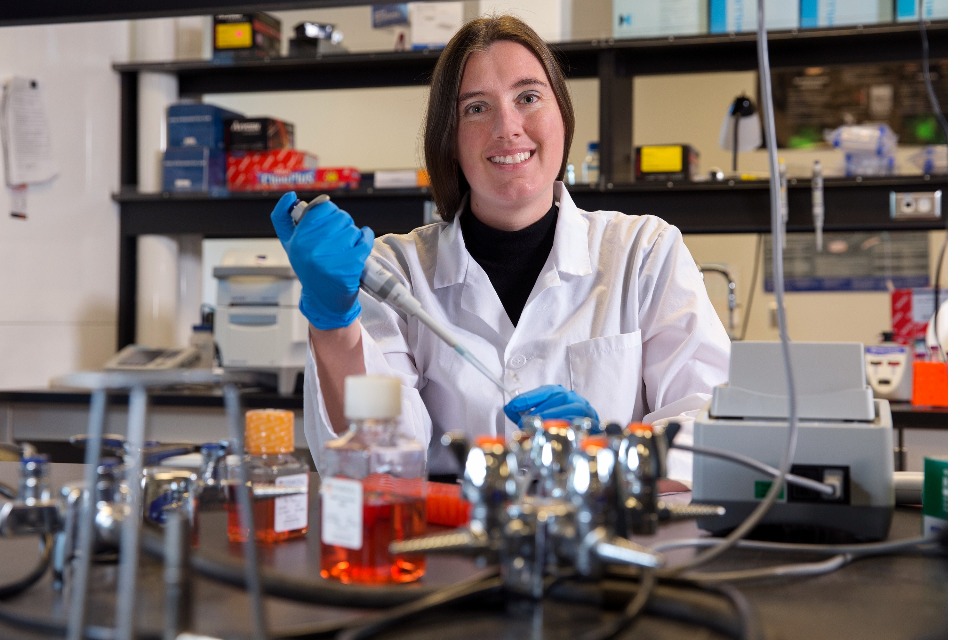BC grants ignite UVic innovation

Two University of Victoria researchers working with industry to ignite the development and application of new technologies have been awarded BC Innovation Council Ignite grants for their vital work advancing the protection of endangered species and the future of personalized medicine.
Molecular biologist Caren Helbing received a $185,000 Ignite grant for her work with environmental consulting firm Hemmera Envirochem and environmental laboratory Maxxam Analytics to refine a method of detecting the presence of aquatic animal species through environmental DNA (eDNA). The method will allow ecologists to determine the geographical range of threatened and endangered species by identifying the specific eDNA that every animal leaves behind in the waters and soil of its habitat.
Determining whether a species is at risk currently comes down to human observation, a costly and often destructive method of verifying a species’ presence. Helbing’s eDNA technology allows researchers to simply analyze a scoop of water or soil to determine whether a species is present in a particular habitat.
Funding from BC Ignite to refine eDNA methodology will allow for systematic, reliable and standardized testing methods, and the creation of the first commercially available eDNA test in BC.
Biomedical engineer Stephanie Willerth received $139,700 for her work with Aspect Biosystems that uses 3D printing technology to print human neural tissue. Willerth and Aspect have already been working together to reengineer human skin cells into pluripotent stem cells, which have the capability of forming any cell type found in the body.
The new project will see the engineered tissue printed using Aspect’s specialized bio-ink formula, producing neural tissue that can be used to recreate the pathology of spinal cord injury and neuro-degenerative disorders such as Parkinson’s disease.
Willerth’s work also aims to create a human-cell platform for testing new drugs to treat such disorders, which holds significant promise for personalized medicine applications in the future. She was one of the panelists presenting at the fall 2017 BCIC awards dinner last night in Vancouver.
BC Ignite grants are awarded twice a year and are intended to cover a third of project costs. Successful recipients are then required to secure remaining funds from industry or other government sources.
-- 30 --
Photos
Media contacts
Caren Helbing (Biochemistry and Microbiology) at 250-721-6146 or chelbing@uvic.ca
Stephanie Willerth (Mechanical Engineering) at 250-721-7303 or willerth@uvic.ca
Vimala Jeevanandam (Communications Officer, Faculty of Science) at 250-721-8745 or scieco@uvic.ca
Suzanne Ahearne (University Communications + Marketing) at 250-721-6139 or sahearne@uvic.ca


